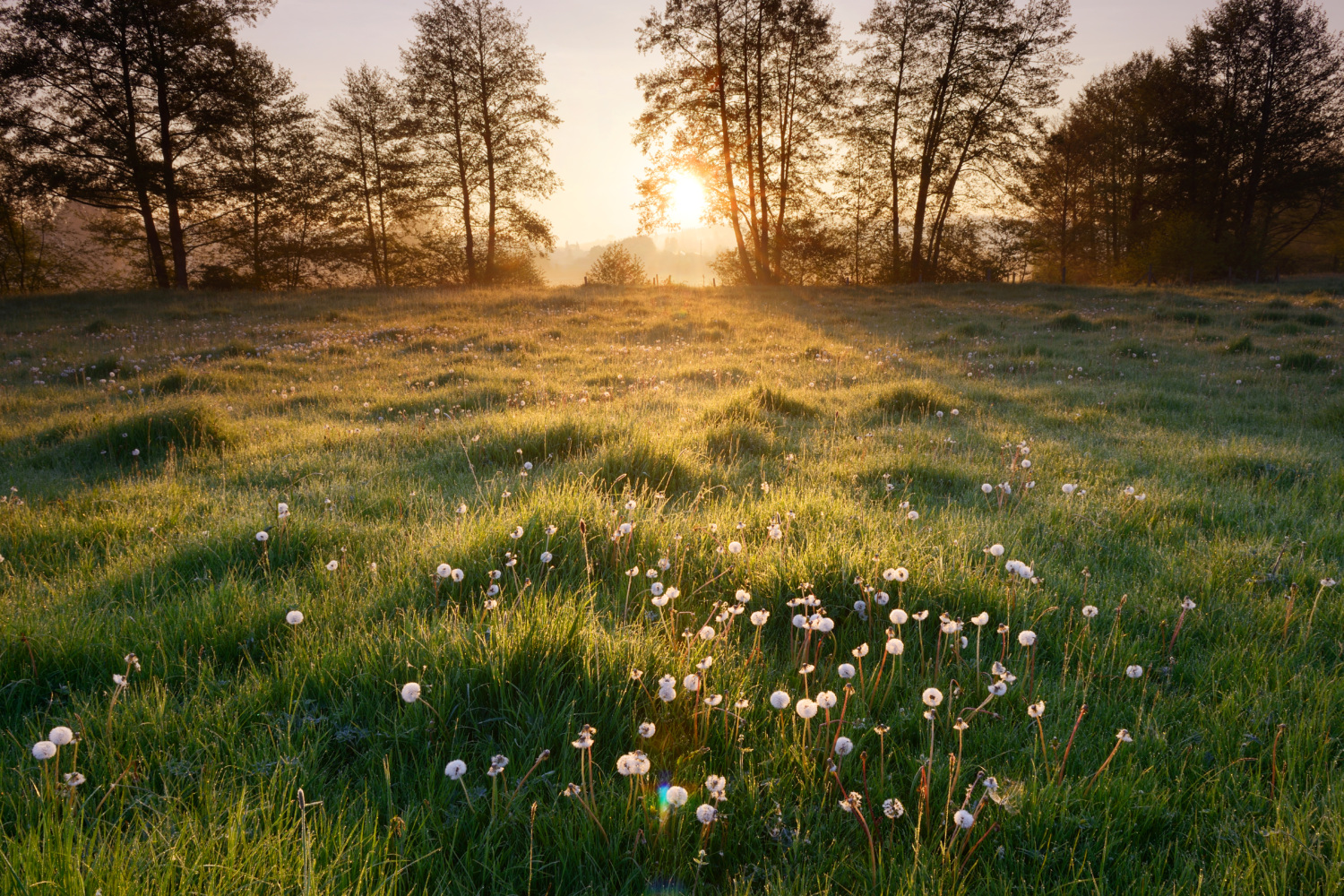Proudly Made
in Normandy
The crafting of Pommeau de Normandie, a blend of fresh apple juice and Calvados, requires patience and precision.
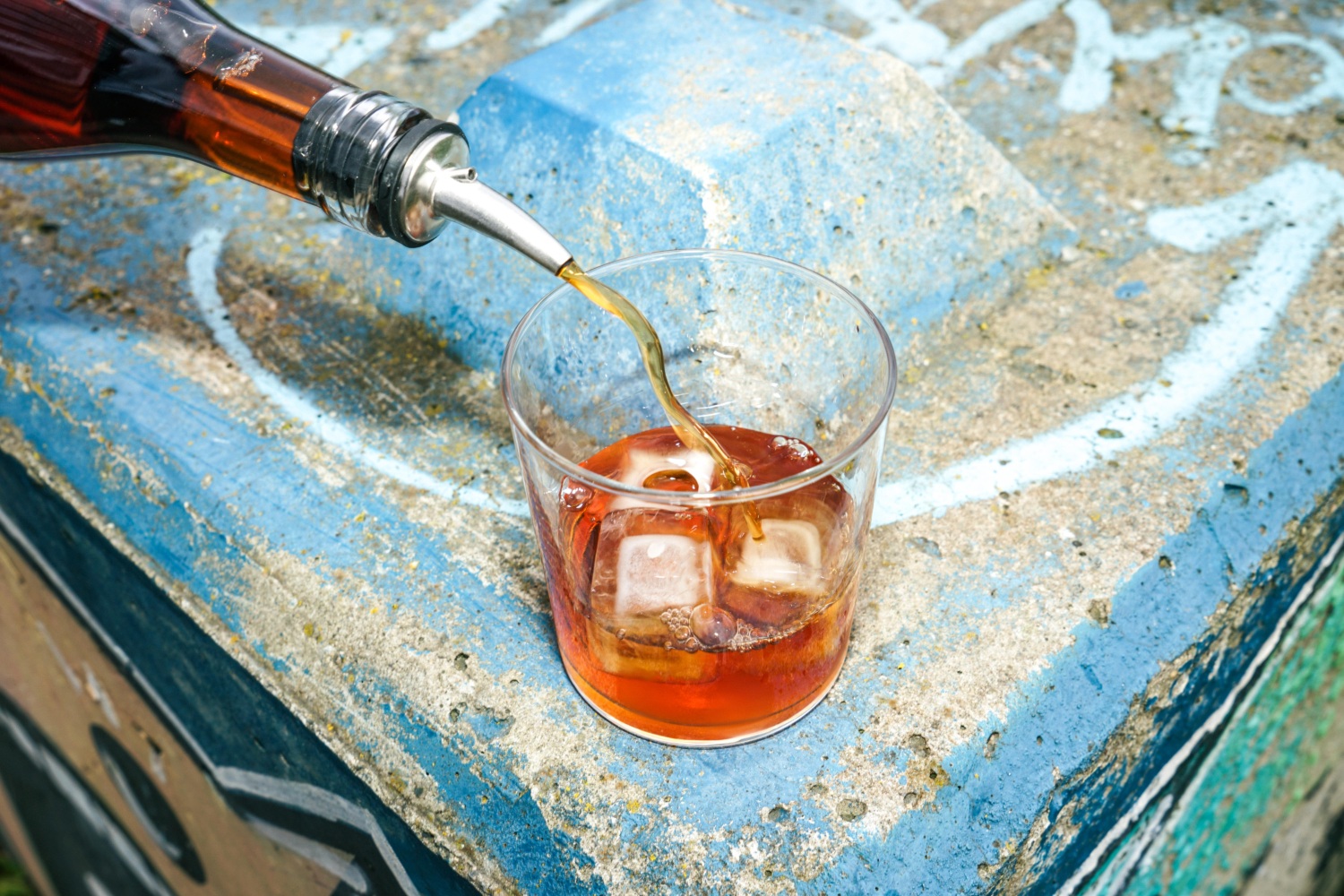
It all starts with the apple trees. Naturally.
These orchard apple trees belong to a list of varieties that reflects local uses and specificities.
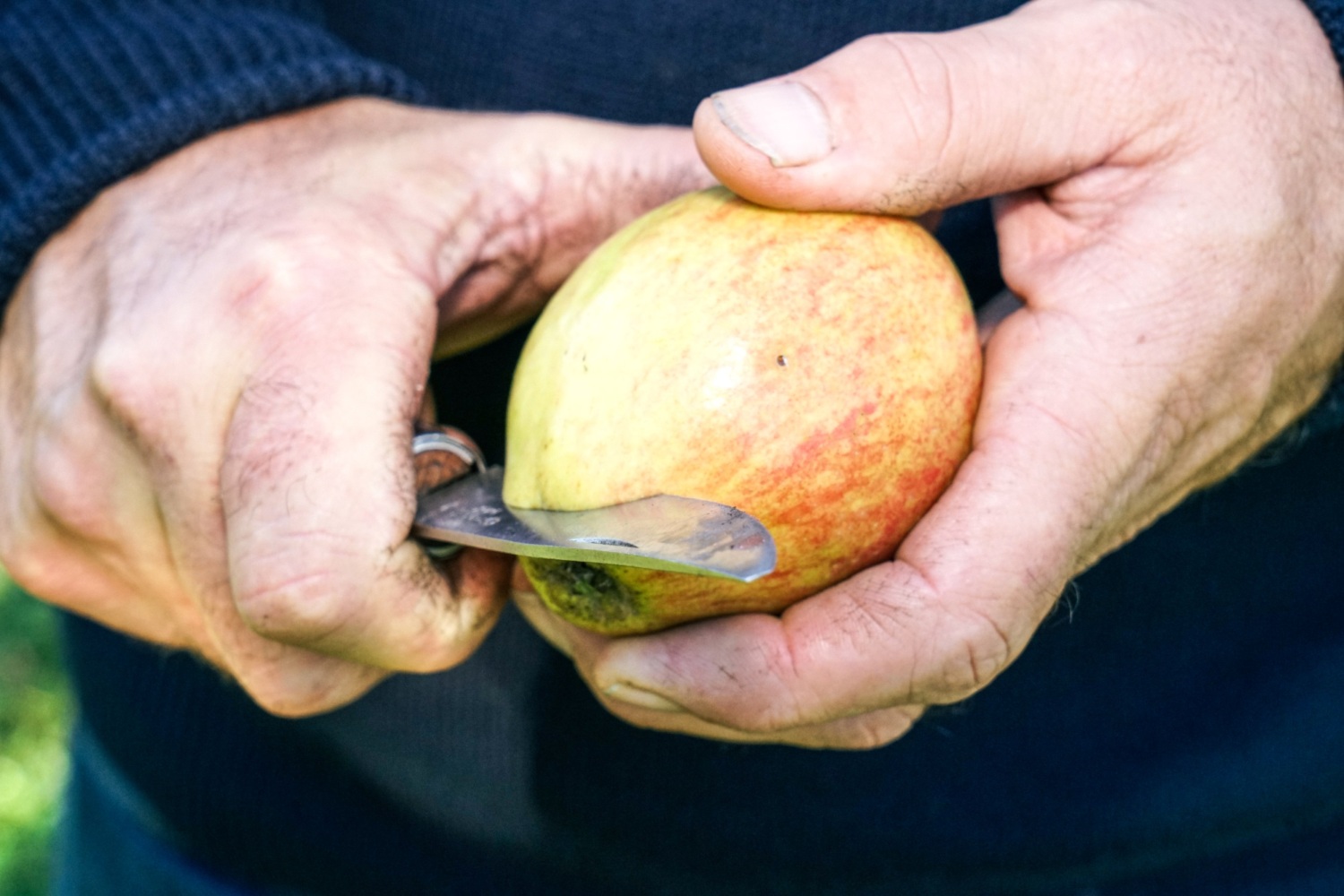
At least 70% of them grow bitter or bittersweet apple varieties.
These orchards can be grown in one of two ways: either as “high-stem” orchards in orchard meadows or as “low-stem” orchards in specialised orchards.
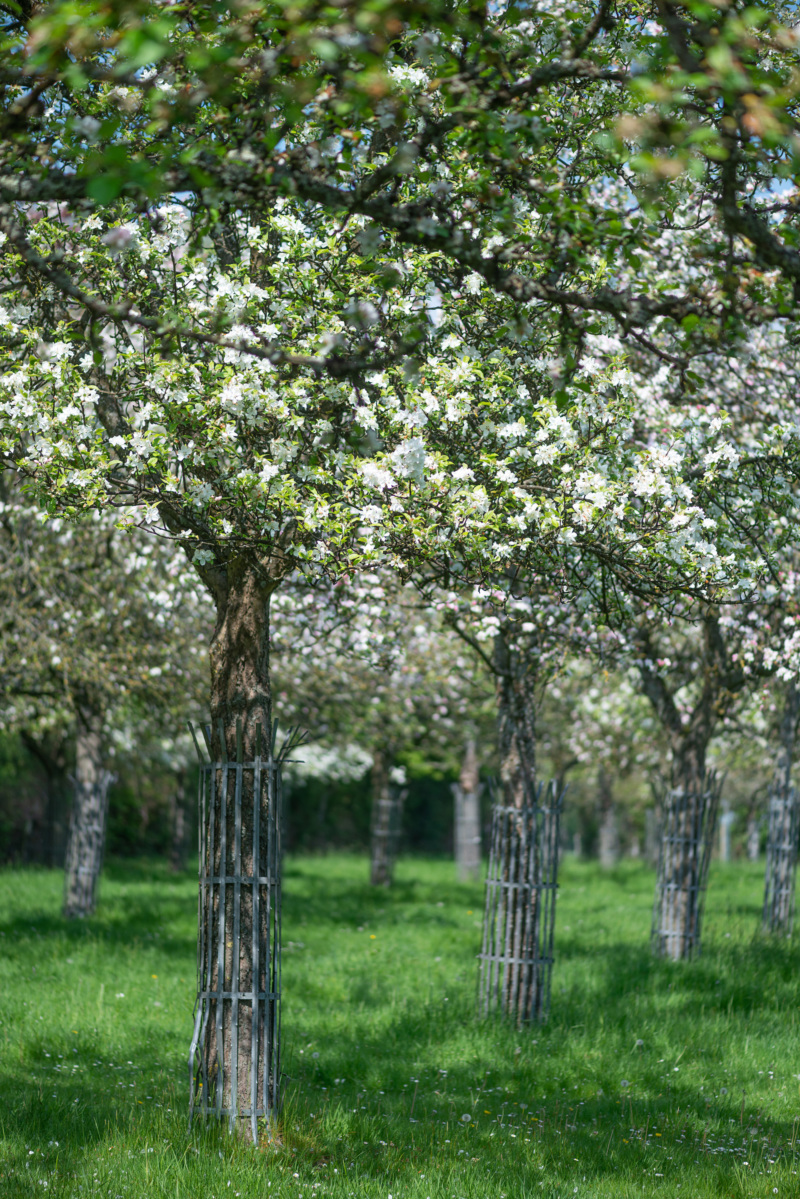
In the traditional meadow orchard, the trees are grown as high-stemmed trees and spaced at least 5 meters apart. The ground is systematically grassed, except around the base of the trees, where weed control can be applied within a 0.30-meter radius.
The trees are often of varying ages, as they are continuously renewed.
Specialized orchards, on the other hand, are made up of uniform rows of trees planted every 2 to 3 meters, with rows spaced approximately 5 meters apart.
The average yield of meadow orchards is set at 20t/ha, while that of “low-stemmed” orchards is 30t/ha.
The production conditions of the fruit (varieties, soil, climate, and cultivation practices) ensure the distinctiveness of the musts used in the crafting of Pommeau de Normandie. This distinctiveness is characterized by a high concentration of sugars and phenolic compounds, as well as exceptional aromatic qualities.
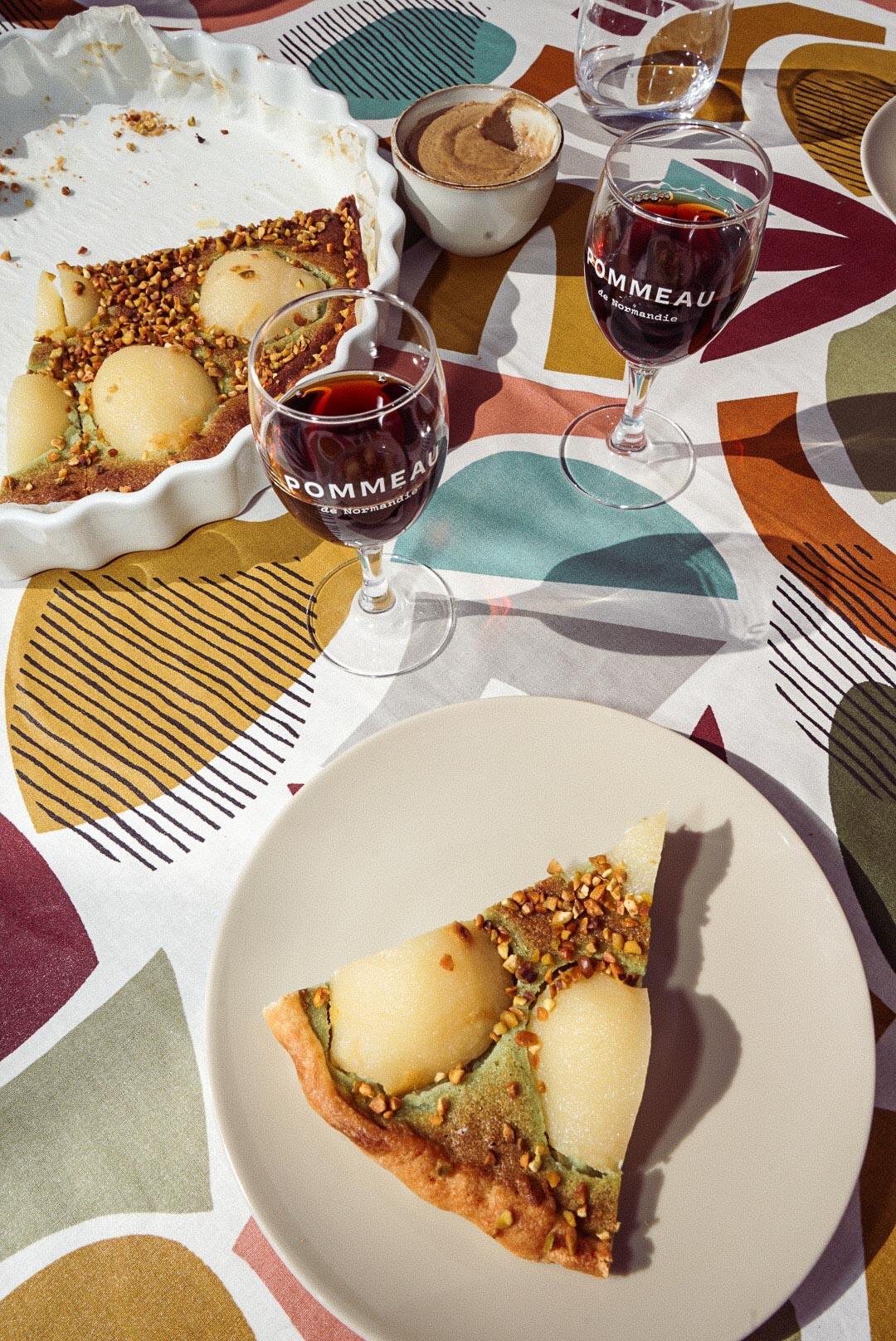
Phenolic varieties must account for at least 70% of the composition of the musts.
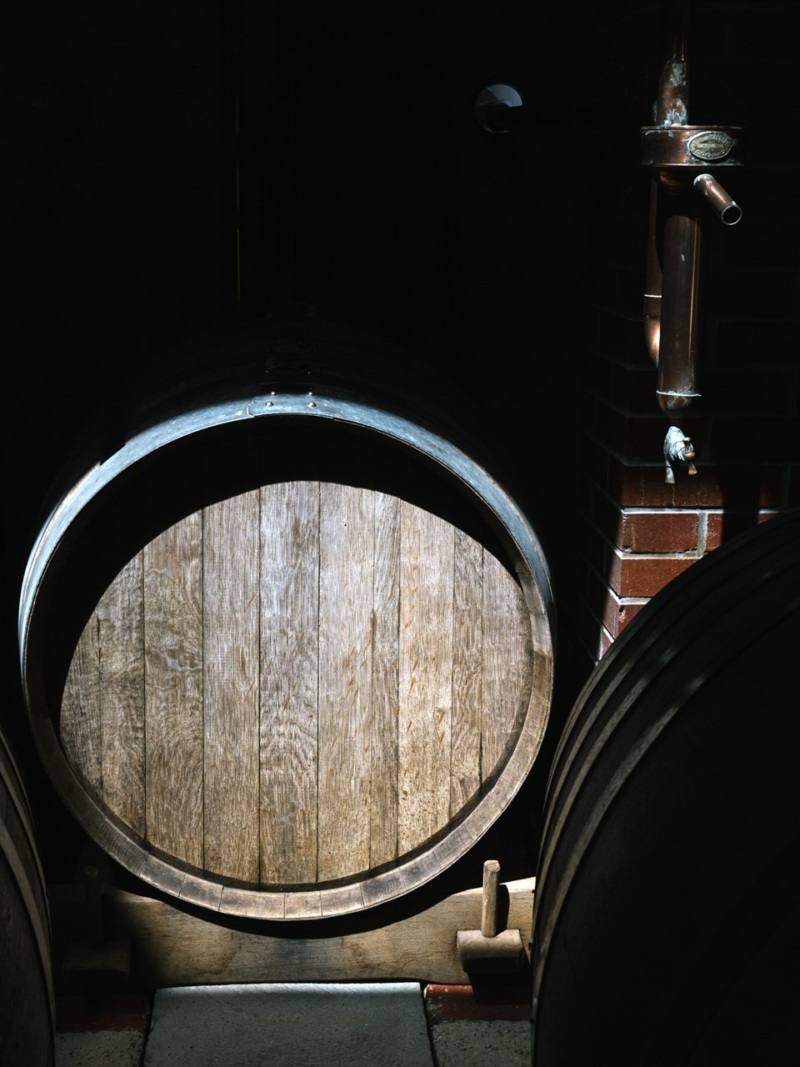
Similarly, it is not permitted to produce must using only one type of apple: no single variety may account for more than 50% of the juice composition.
Once harvested, the apples are grated.
The resulting pulp is pressed without maceration. The juices must naturally exhibit a minimum sugar content of 108 grams per liter.
They may be clarified through depectinization, racking, or, in some cases, used in their raw state.
The must is then fortified—at the right moment—with Calvados, Calvados Pays d’Auge, or Calvados Domfrontais that has been aged for at least one year in wood and has an alcohol content exceeding 65% by volume. This process halts fermentation
The blend is then aged in oak barrels for a minimum of 14 months.
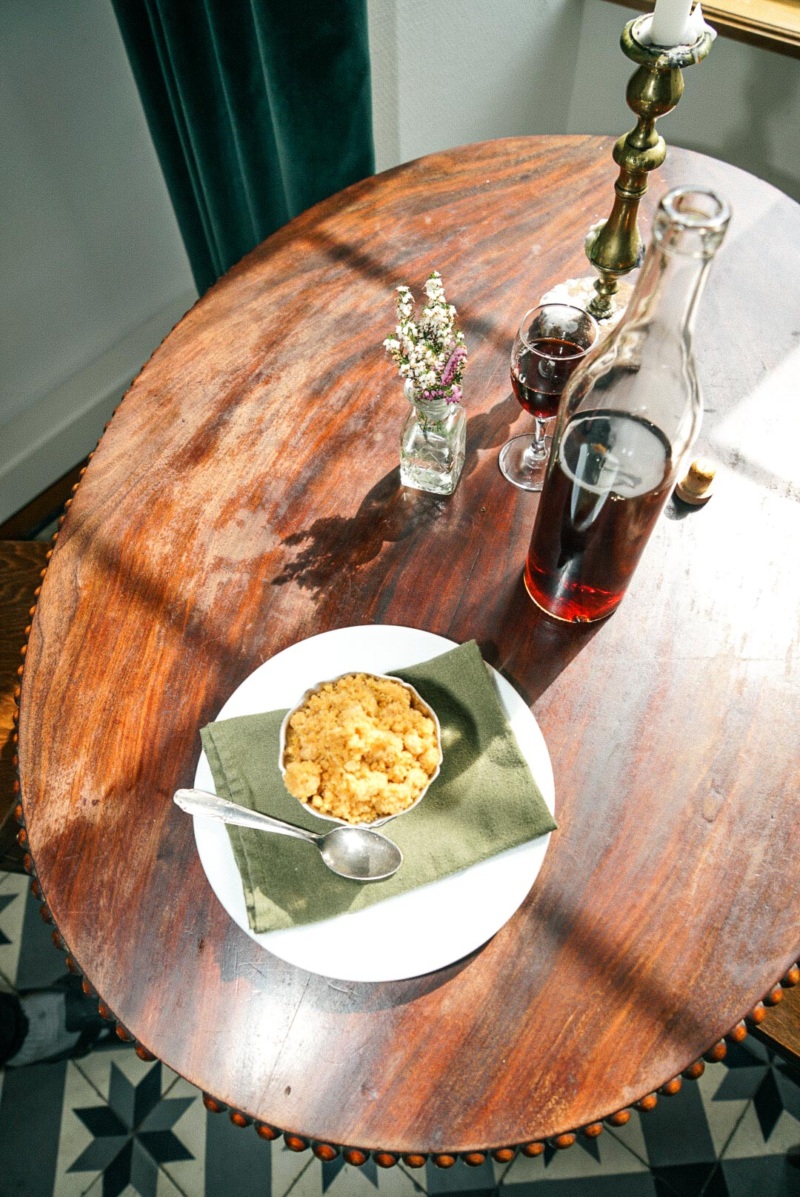
The alcohol inhibits yeast and bacteria, meaning that the sugar and alcohol content change very little after this period, with only slight alcohol evaporation.
The blend is regularly worked to achieve perfect homogenization and to allow the oxidation of polyphenols, which is essential for its distinctive coloration.
The final batches may be composed by blending several productions.
They are then filtered and bottled.
Pommeau de Normandie contains at least 69 grams of unfermented sugar per liter, with an alcohol content ranging between 16% and 18%.
